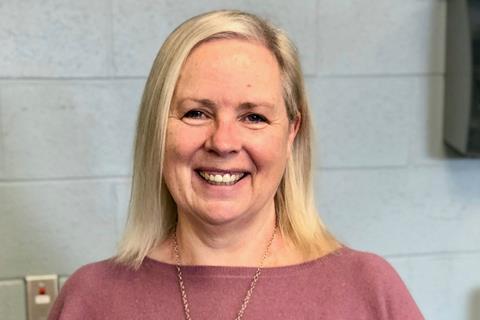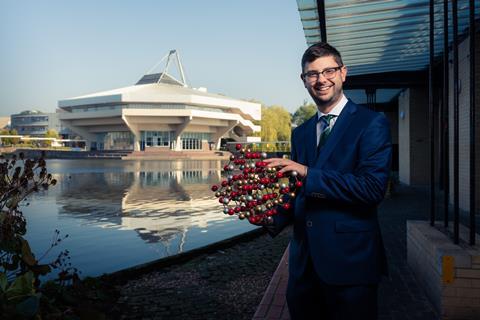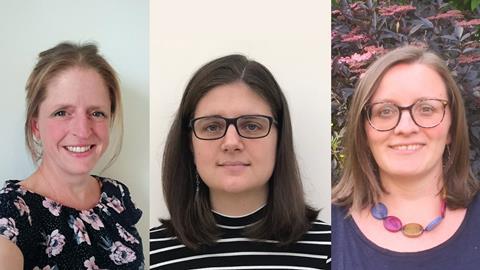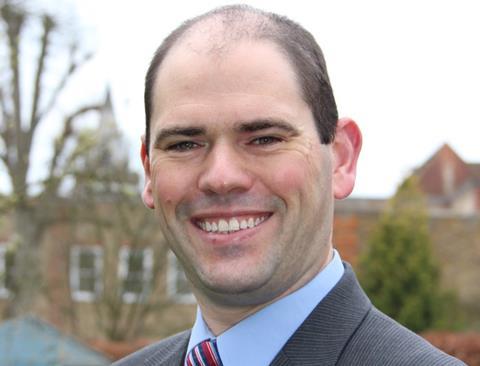Meet the 2020 winners of the RSC awards for chemistry educators
Today the Royal Society of Chemistry unveiled the 2020 winners of its annual awards, which celebrate exceptional achievements in advancing the chemical sciences. Among those celebrated this year are individuals and teams who have made significant contributions to chemistry education – and you can meet them below.
Visit the RSC awards gallery page for more detailed profiles of all of the winners, as well as video interviews with some of the winners and judges.
Education award

Melanie Cooper is the Lappan-Phillips professor of science education and professor of chemistry at Michigan State University, US, and was awarded for outstanding accomplishments in designing, implementing and evaluating evidence-based chemistry curriculums and catalysing the careers of many chemistry education researchers.
Her work has focused on improving the chemistry education of students at university level and developing curriculums for general and organic chemistry courses that are based on research about how people learn.
‘I am honoured and thrilled to receive the 2020 Education Award,’ said Melanie. ‘Although I moved to the United States many years ago, I will be forever grateful for the education that I received in the United Kingdom at the University of Manchester. This makes it even more meaningful to me to receive this award … in recognition of my efforts to improve the chemistry education of students.’
Higher education teaching award

Glenn Hurst is an assistant professor in chemical education at the University of York and was awarded for his impactful work in green chemistry teaching, resulting in national and international renown – particularly in terms of his innovative use of social media in higher education, having already been recognised by Jisc as one of the top ten social media superstars in higher education in 2017.
Glenn’s research interests focus on adopting systems thinking approaches within all levels of green and sustainable chemistry education as part of his work in the Green Chemistry Centre of Excellence, as well as utilising social media for technology-enhanced learning and developing new mobile applications for game-based learning.
‘I feel very privileged to receive this special award,’ said Glenn. ‘I wish to thank the brilliant students at chemistry at York together with my inspirational and supportive colleagues across the institution. It is a real honour for me to receive such a prestigious award so early in my career and for that I am very grateful. Thank you.’
Higher education technical excellence award
The Technical support team at Lancaster University’s department of chemistry was awarded for their pivotal role in operating the laboratory courses, supporting research and developing a highly successful and creative outreach programme in a new department of chemistry.
Consisting of 10 members, the team delivers technical teaching support as well as specialised research support across various aspects of analytical chemistry. The team said, ‘We are thrilled and honoured that our contribution has been recognised with this award.’
The Technical support team members:
- Geoff Akien – Experimental Officer in Nuclear Magnetic Spectroscopy
- Naseem Aktar – Teaching Laboratory Technician
- Sara Baldock – Experimental Officer in Microscopy & Nanofabrication
- Rachel Bashforth – Associate Lecturer and Outreach Officer
- John Baum – Teaching Laboratory Technician
- Nathan Halcovitch – Experimental Officer in X-ray Techniques
- Helen Quirk – Departmental Superintendent
- David Rochester – Experimental Officer in Separations & Mass Spectrometry
- Gail Sheldrick – Recruitment, Conversion and Marketing Coordinator
- David Townsend – Innovation Fellow Physical and Analytical Chemistry
Inspiration and industry award

Zoe Schnepp, Nicola Rogers and Ruth Patchett of ChemBAM, based in the school of chemistry at the University of Birmingham, were awarded for inspiring the next generation of chemists through activities that link classroom teaching to real world chemistry research.
Founded in 2017, ChemBAM aims to bring chemistry to life for pupils across the UK and beyond. The website provides free resources designed to promote the enjoyment of and engagement with the subject and hopefully inspire school pupils to consider a degree in chemistry.
The ChemBAM team said, ‘We are absolutely delighted … [t]he team have committed themselves wholeheartedly to the ChemBAM project over the past few years and it’s a real pleasure to see that work being honoured. We would like to thank all of the staff, researchers and students who have volunteered their time on this project, either through developing resources or working in schools. In addition, we would like to thank all the people and organisations that have funded our work. We hope that the extra publicity from this award will help us to build the website and resources even further.’
Schools education award

David Paterson is a chemistry teacher at Aldenham School, Elstree, where he has been developing his ideas on how integrated instructions can support students in carrying out and understanding practical chemistry. He was awarded for developing innovative and accessible ways of ensuring that chemistry in schools remains a rigorous practical subject.
‘I was thrilled to hear of my award, and I am very grateful for the recognition,’ he said. ‘Many others have contributed to the work, not least my colleagues and the students at Aldenham School, and my mentors through the RSC CERG Teacher researcher fellowship scheme. I am excited at the opportunity to share my ideas and resources more widely.’























No comments yet